Ai in hr revolutionizing resume analysis and redefining recruitment in the corporate world
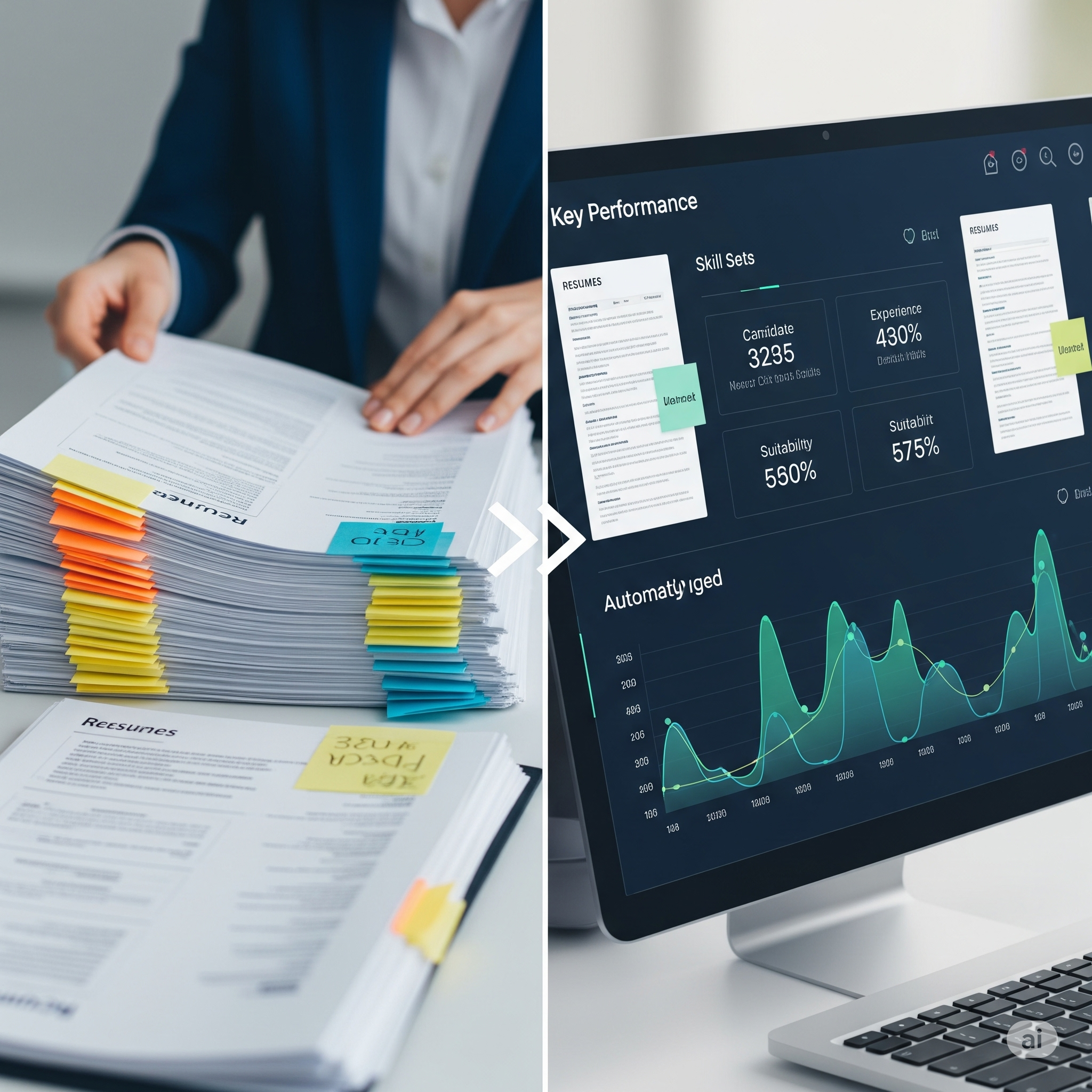
AI in HR: Revolutionizing Resume Analysis and Redefining Recruitment in the Corporate World
Introduction:
The recruitment landscape is undergoing a transformative shift, and at the forefront of this evolution is Artificial Intelligence (AI). What was once a manual, time-consuming, and biased process is now increasingly becoming streamlined, objective, and efficient—thanks to AI technologies. From resume screening to candidate shortlisting, AI is reshaping how corporate HR teams operate.
1. The Problem with Traditional Resume Screening
Recruiters often have to sift through hundreds, if not thousands, of resumes for a single job posting. This manual effort:
- Takes significant time and resources
- Risks unconscious bias
- May overlook qualified candidates due to human error or fatigue
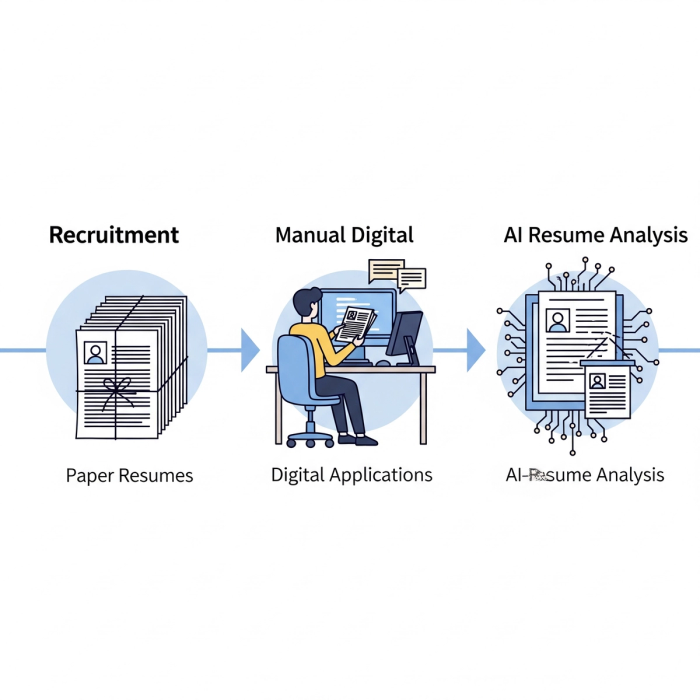
2. How AI is Changing Resume Analysis
AI tools are now capable of:
- Parsing resumes to extract key information like skills, experience, education, and certifications.
- Matching candidates to job descriptions based on keyword analysis, semantic understanding, and role-fit algorithms.
- Ranking resumes based on relevance, reducing the pool to the most qualified applicants.
Some systems also use Natural Language Processing (NLP) and Machine Learning (ML) to continually learn what traits are associated with successful hires.

3. Real-Time Benefits for Corporate HR Teams
- Speed: AI can analyze thousands of resumes in seconds.
- Consistency: It applies the same rules and filters to every candidate, reducing biases.
- Scalability: Especially useful for companies hiring at scale across regions or departments.
- Better Candidate Experience: Faster responses and fewer delays lead to improved interactions with potential hires.
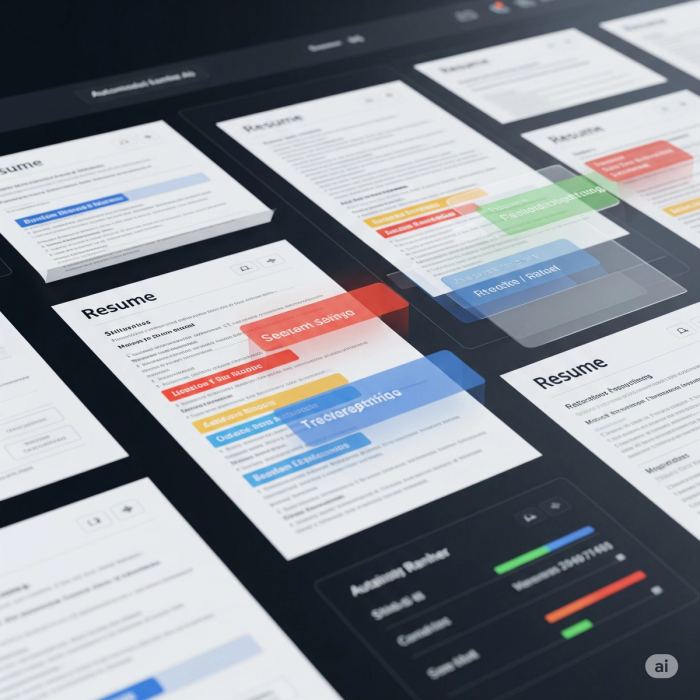
4. AI in the Broader Recruitment Process
AI isn’t just limited to resume screening. It also enhances:
- Chatbots for answering candidate FAQs
- Automated interview scheduling
- Predictive analytics to forecast a candidate’s likelihood of success or retention
- Video interview analysis to assess communication skills and sentiment
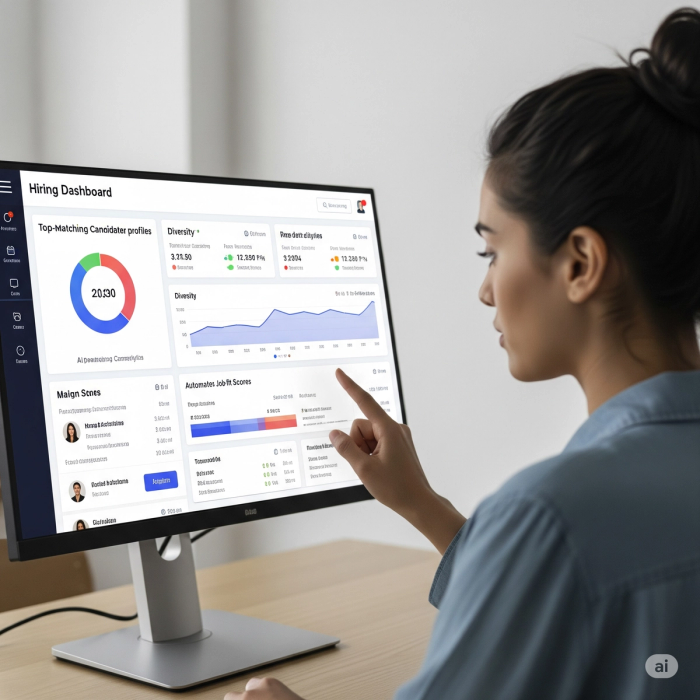
5. Addressing Ethical Concerns and Limitations
While AI enhances efficiency, it also raises concerns:
- Bias in algorithms: If not trained properly, AI can reflect societal biases.
- Transparency: Candidates often don’t know how they were filtered or selected.
- Over-reliance: Human judgment is still crucial, especially for cultural fit and soft skills.
HR leaders must ensure AI is audited, explainable, and inclusive.
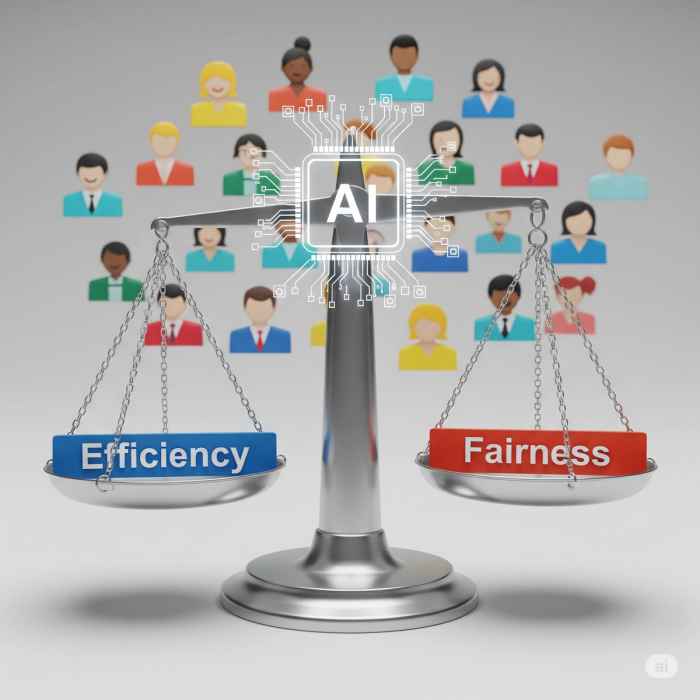
6. The Future of AI in Recruitment
As AI continues to evolve, we can expect:
- More personalized job recommendations
- AI-driven talent marketplaces
- Integration with employee performance data to improve future hires
Companies that adopt these technologies early will gain a competitive edge in attracting and retaining top talent.
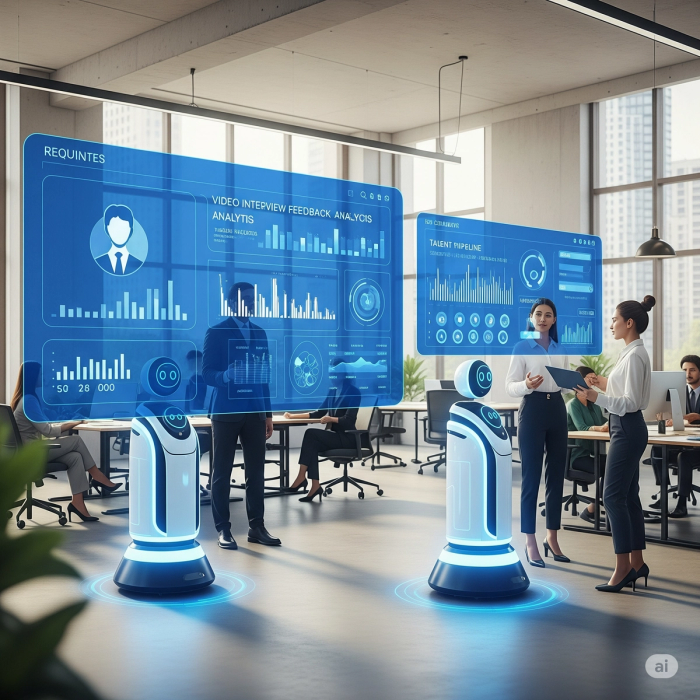
Conclusion:
AI is not here to replace HR professionals—it’s here to empower them. By automating repetitive tasks and offering data-driven insights, AI allows recruiters to focus on what truly matters: building relationships, evaluating potential, and creating inclusive workplaces.